Nan Goldin documentary is a gritty tale of addiction, resilience, and battles with the Sackler family
Released in the UK on 27 January, ‘All the Beauty and the Bloodshed’ by director Laura Poitras chronicles acclaimed photographer Nan Goldin’s complex life, work, and tireless activism to hold power to account.

The opening scene of All the Beauty and the Bloodshed begins in 2018 at the Egyptian Temple of Dendur in The Met Museum in New York. There, Nan Goldin is leading activists from P.A.I.N. (Prescription Addiction Intervention Now) in a protest in what was then the museum’s Sackler Wing, named after the pharmaceutical dynasty widely criticised for its role in America’s opioid crisis. They shout ‘shame’ and throw pill bottles, labelled with ‘prescribed to you by the Sackler Family’, into the museum’s indoor moat.
This sets the tone for a documentary that blends art and activism to blistering effect. Directed by Academy Award-winner Laura Poitras, the film became the second documentary to receive the coveted Golden Lion award at the Venice Film Festival in 2022 and currently sits on the shortlist for Best Documentary Feature Film at the 95th Academy Awards (winners announced 12 March 2023).
‘All the Beauty and the Bloodshed’: power and resistance
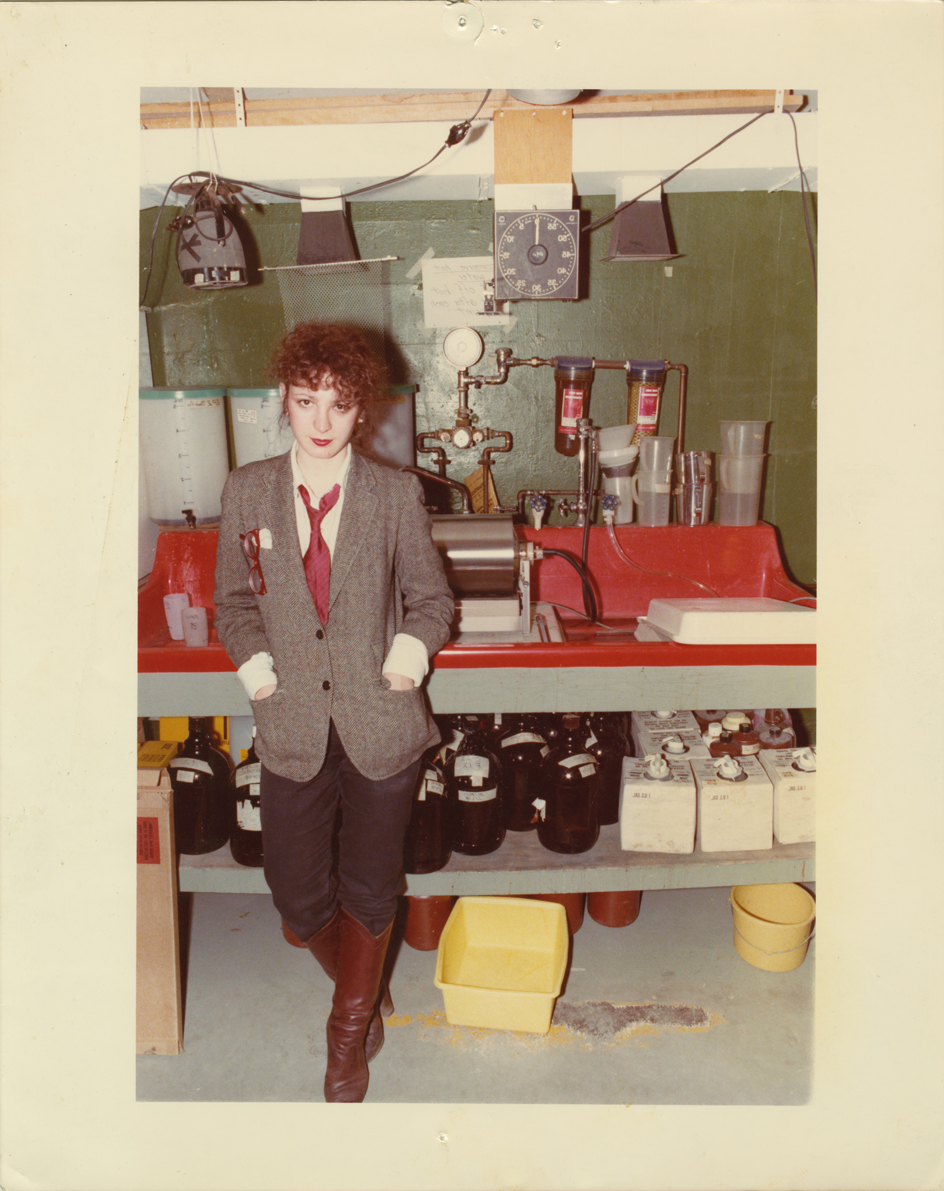
Poitras’ film deftly bookends and interweaves the life and work of Goldin with her tireless activism, stories of personal agony, and how she's used creativity as a tool for change. Power and resistance are recurring themes, past and present. Goldin’s early work – photographic chronicles of life in Boston’s gay and transgender communities – was met with hostility particularly, as she notes in the film, from male artists and gallerists.
In 1986, she curated the controversial landmark group exhibition ‘Witnesses: Against Our Vanishing’. The subject of national controversy, it was the first show to exclusively confront the Aids epidemic – during which Goldin lost close friends – and its social stigma.
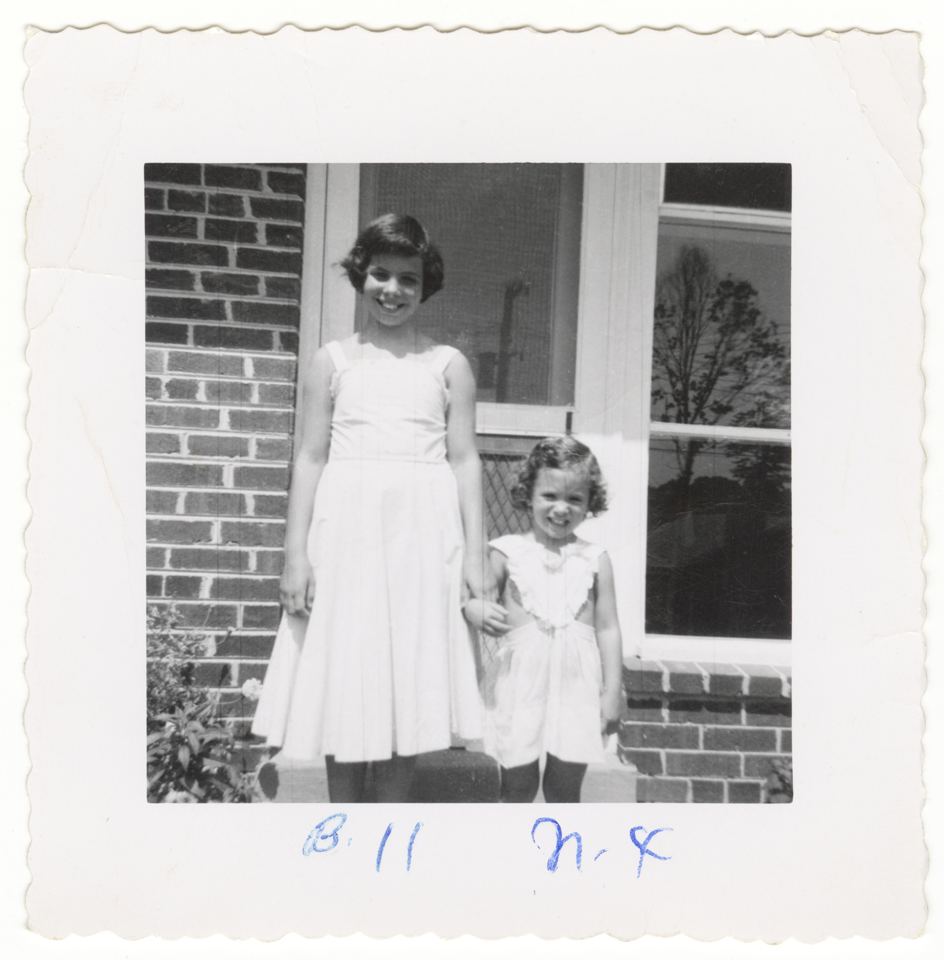
Nan and Barbara holding hands; Goldin and her sister as children
The same year, Goldin would create her best-known work, The Ballad of Sexual Dependency (1986). It captures the off-guard extremes of human nature: the ecstasy, agony, love, sex, drugs and domestic violence in Goldin's social circle, all captured on 35mm slideshows. The deeply personal narrative continues as Goldin recounts how she was addicted to the opioid painkiller OxyContin in 2014. ‘My anger at the Sackler family is personal,’ she says in the film. ‘When you think of the profit of people’s pain, you can only be furious.’
At its heart, this is a film about family: Nan Goldin’s own family and childhood challenges, which involved her sister’s tragic suicide; and the familial 1980s communities and LGBT subcultures that Goldin immersed herself in and would base her most defining work on. And then came her battles with the Sackler family. The film chronicles how, since 2017, Goldin has been campaigning to scratch off the veneer of philanthropic nobility to expose the truth and hold power to account.
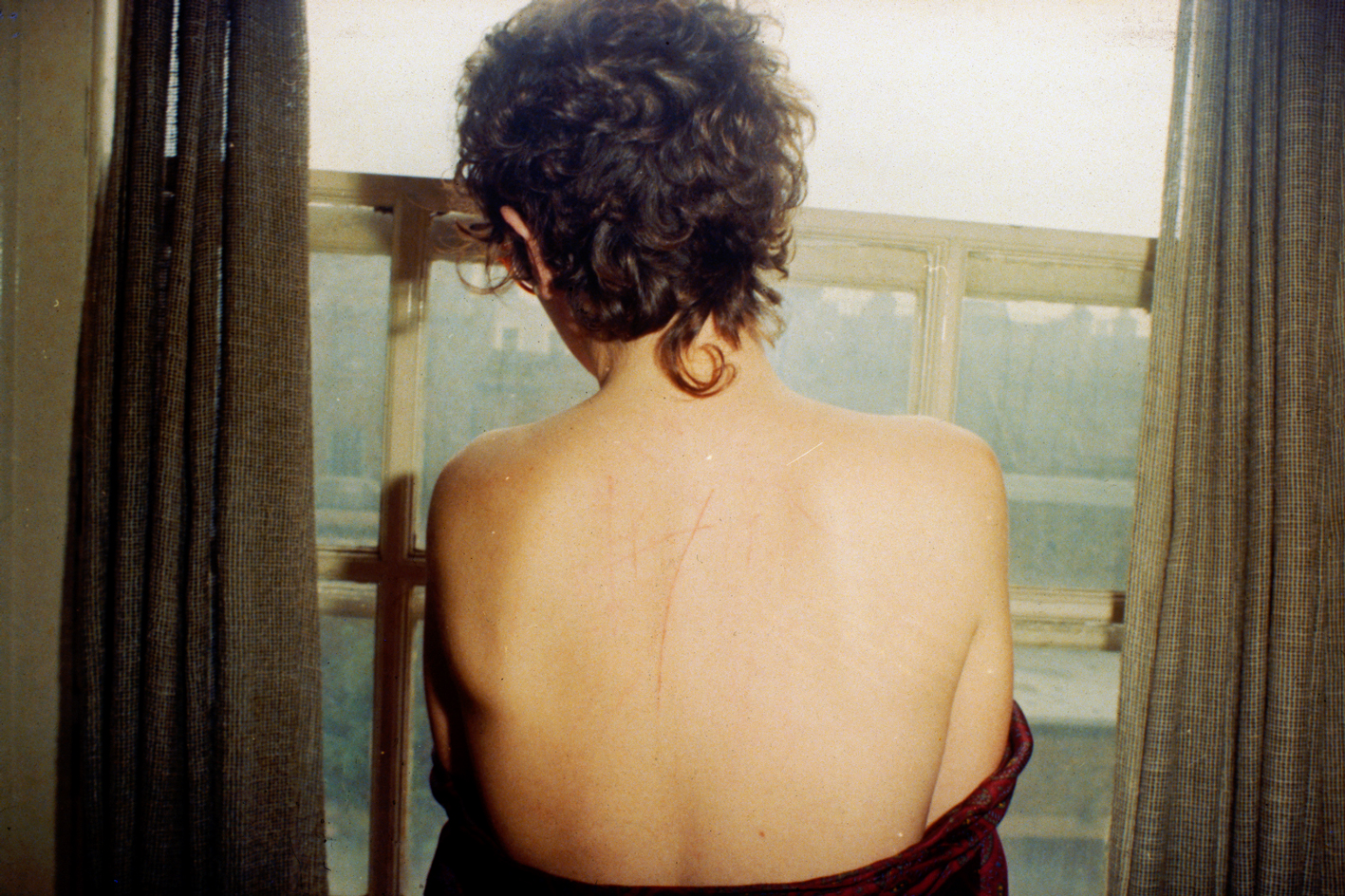
The Sacklers owned and operated Purdue Pharma, the (now-bankrupt) company that sold OxyContin, a high-strength, highly addictive painkiller that arguably fuelled the opioid epidemic. The opioid crisis led to the deaths of around half a million Americans over two decades through overdose (1999 – 2020, as detailed in a hearing published by the US government). Simultaneously, the Sackler family was prolific in offering handsome donations to arts institutions, its name stamped on wings and lobbies of global museums. Since Goldin’s activism began, global museums including the V&A, Tate, and the Louvre have dropped financial ties with the Sackler family. As Reuters reported in March 2022, the Sacklers paid $6 billion to resolve litigation alleging that OxyContin fuelled the US opioid crisis.
Wallpaper* Newsletter
Receive our daily digest of inspiration, escapism and design stories from around the world direct to your inbox.
Poitras’ epic ends back at The Met’s Egyptian Temple of Dendur. It’s now 2021, and the Sackler name has just been erased from the glass pane above the entrance. It’s a potent end to an agonising journey of loss, resilience and the journey to justice.
‘All the Beauty and the Bloodshed’ will be released in UK cinemas on 27 January 2023.
The documentary coincides with ‘This Will Not End Well’, Goldin’s major retrospective, which runs until 26 February 2023 at Moderna Museet, Stockholm, before travelling to the Stedelijk Museum in Amsterdam, the Neue Nationalgalerie in Berlin, and Pirelli HangarBicocca Milan.
Harriet Lloyd-Smith was the Arts Editor of Wallpaper*, responsible for the art pages across digital and print, including profiles, exhibition reviews, and contemporary art collaborations. She started at Wallpaper* in 2017 and has written for leading contemporary art publications, auction houses and arts charities, and lectured on review writing and art journalism. When she’s not writing about art, she’s making her own.
-
 Nikos Koulis brings a cool wearability to high jewellery
Nikos Koulis brings a cool wearability to high jewelleryNikos Koulis experiments with unusual diamond cuts and modern materials in a new collection, ‘Wish’
By Hannah Silver
-
 A Xingfa cement factory’s reimagining breathes new life into an abandoned industrial site
A Xingfa cement factory’s reimagining breathes new life into an abandoned industrial siteWe tour the Xingfa cement factory in China, where a redesign by landscape specialist SWA Group completely transforms an old industrial site into a lush park
By Daven Wu
-
 Put these emerging artists on your radar
Put these emerging artists on your radarThis crop of six new talents is poised to shake up the art world. Get to know them now
By Tianna Williams
-
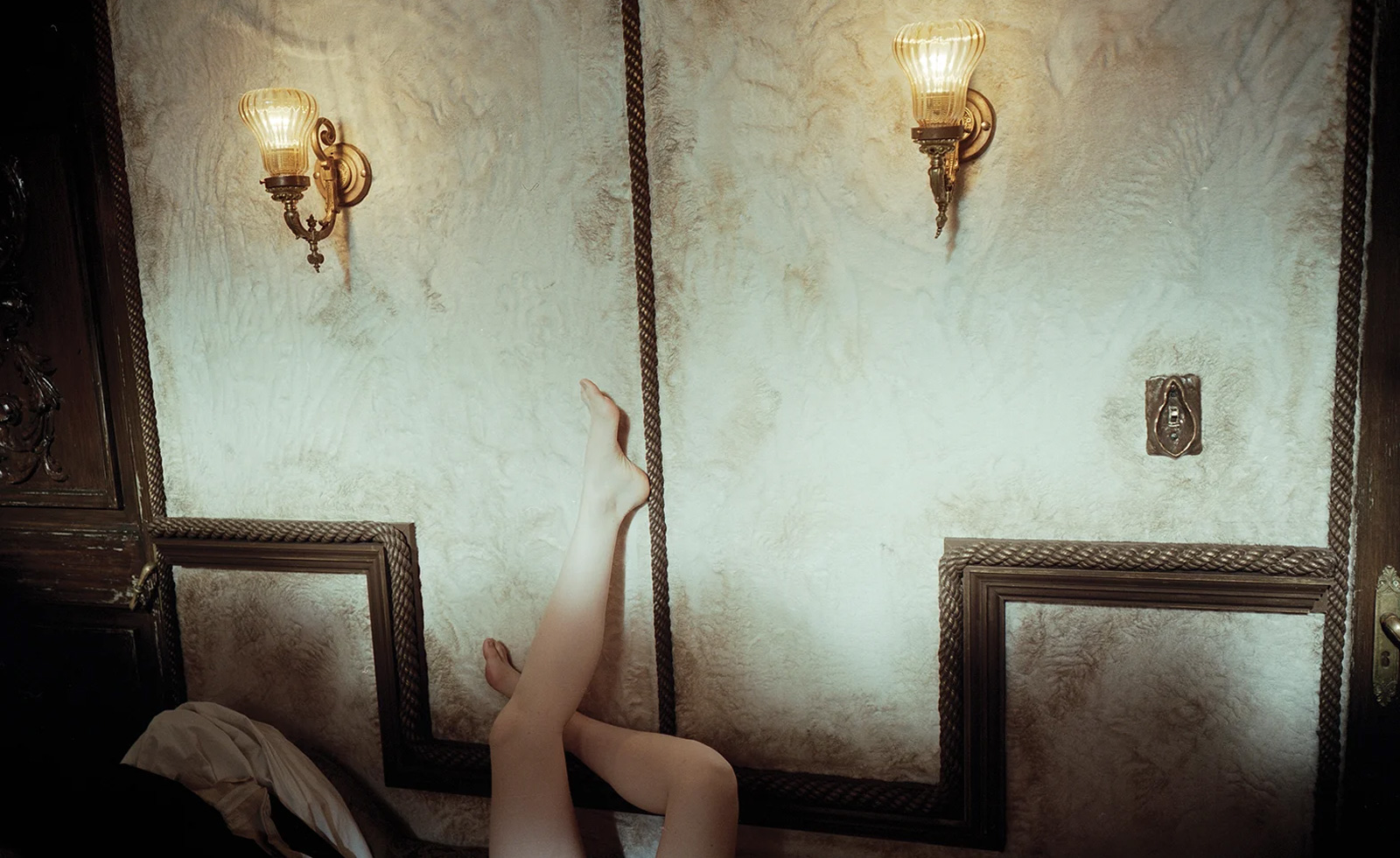 Unlike the gloriously grotesque imagery in his films, Yorgos Lanthimos’ photographs are quietly beautiful
Unlike the gloriously grotesque imagery in his films, Yorgos Lanthimos’ photographs are quietly beautifulAn exhibition at Webber Gallery in Los Angeles presents Yorgos Lanthimos’ photography
By Katie Tobin
-
 ‘Life is strange and life is funny’: a new film goes inside the world of Martin Parr
‘Life is strange and life is funny’: a new film goes inside the world of Martin Parr‘I Am Martin Parr’, directed by Lee Shulman, makes the much-loved photographer the subject
By Hannah Silver
-
 The Chemical Brothers’ Tom Rowlands on creating an electronic score for historical drama, Mussolini
The Chemical Brothers’ Tom Rowlands on creating an electronic score for historical drama, MussoliniTom Rowlands has composed ‘The Way Violence Should Be’ for Sky’s eight-part, Italian-language Mussolini: Son of the Century
By Craig McLean
-
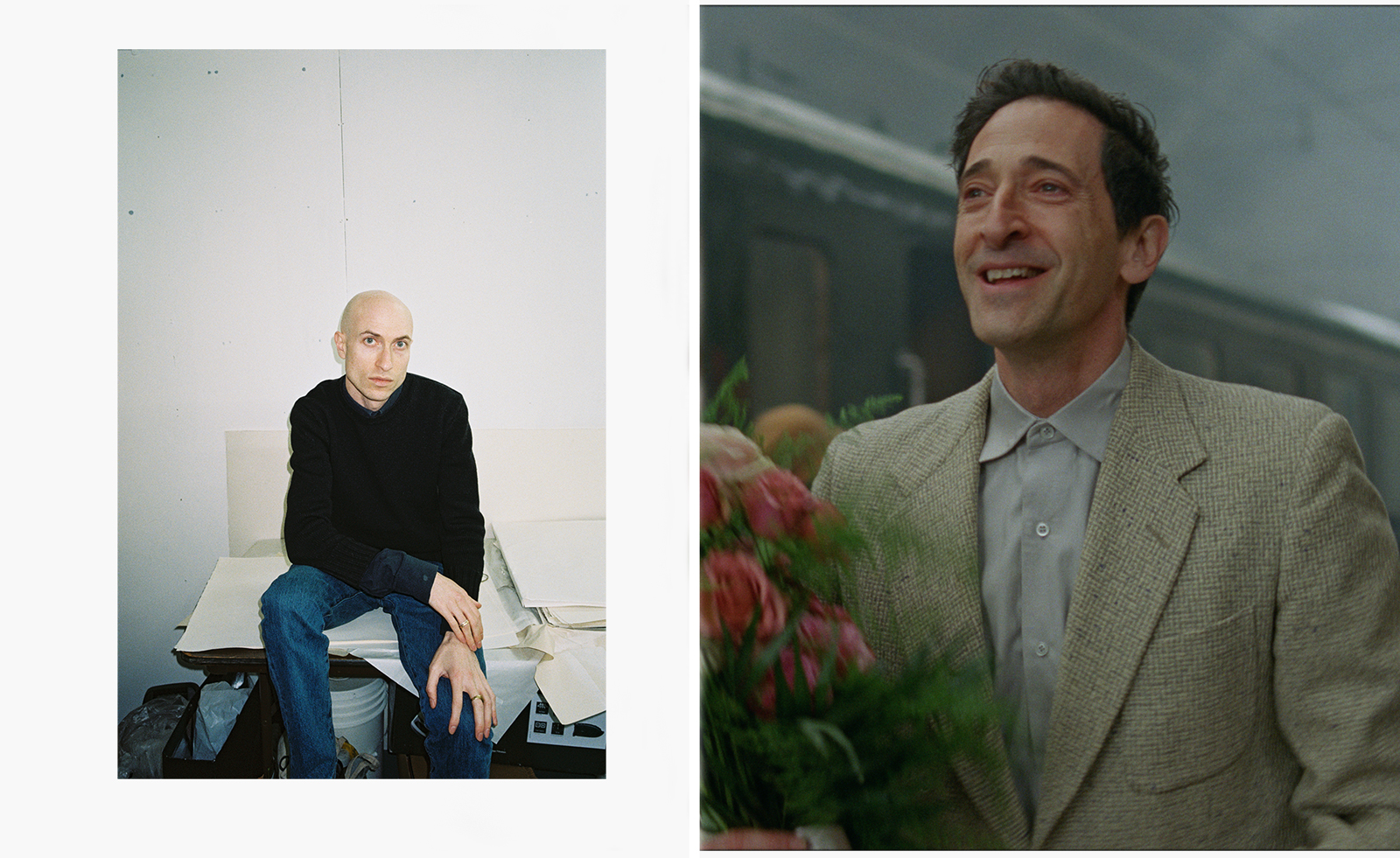 Meet Daniel Blumberg, the British indie rock veteran who created The Brutalist’s score
Meet Daniel Blumberg, the British indie rock veteran who created The Brutalist’s scoreOscar and BAFTA-winning Blumberg has created an epic score for Brady Corbet’s film The Brutalist.
By Craig McLean
-
 Remembering David Lynch (1946-2025), filmmaking master and creative dark horse
Remembering David Lynch (1946-2025), filmmaking master and creative dark horseDavid Lynch has died aged 78. Craig McLean pays tribute, recalling the cult filmmaker, his works, musings and myriad interests, from music-making to coffee entrepreneurship
By Craig McLean
-
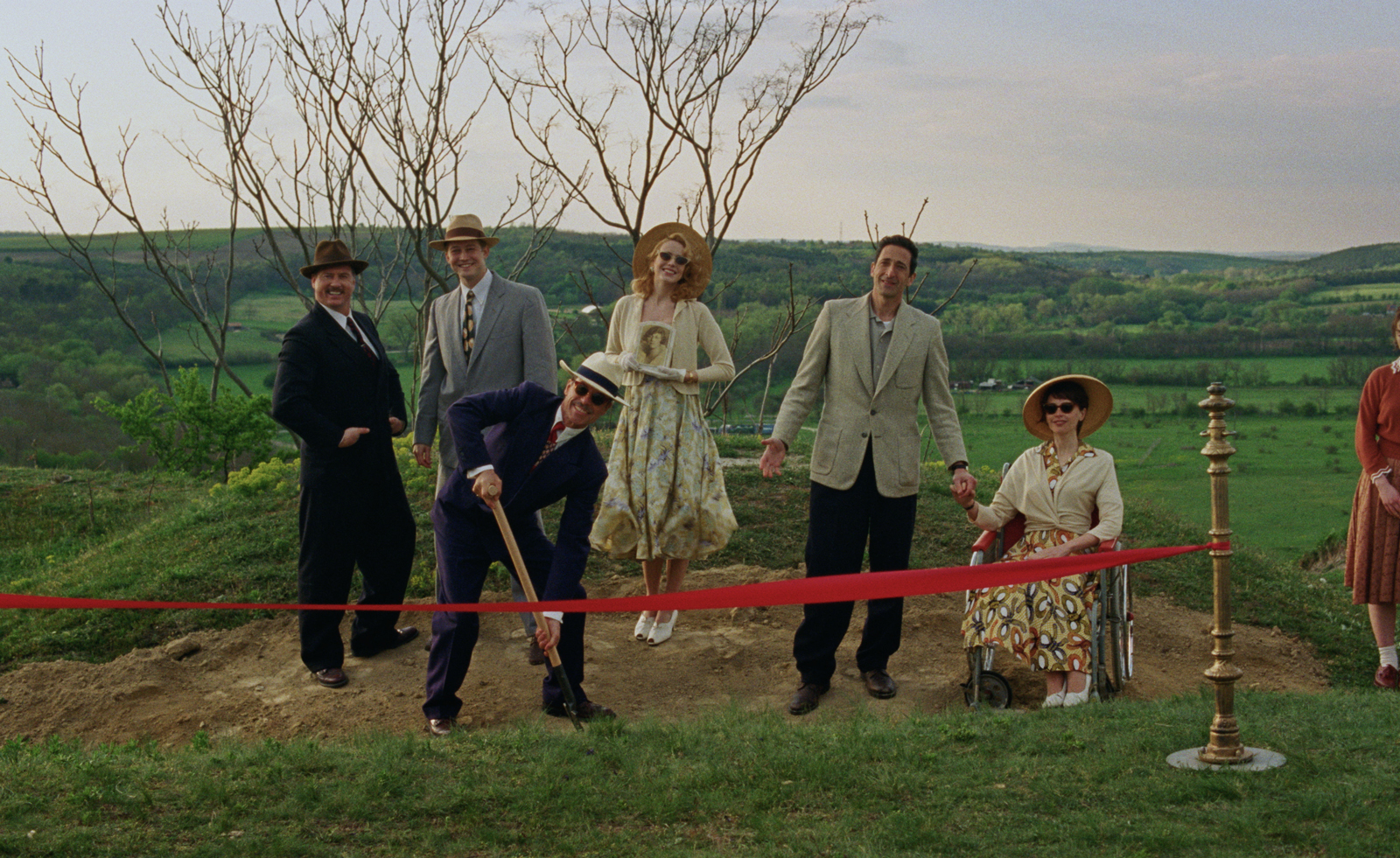 Architecture and the new world: The Brutalist reframes the American dream
Architecture and the new world: The Brutalist reframes the American dreamBrady Corbet’s third feature film, The Brutalist, demonstrates how violence is a building block for ideology
By Billie Walker
-
 ‘It creates mental horrors’ – why The Thing game remains so chilling
‘It creates mental horrors’ – why The Thing game remains so chillingWallpaper* speaks to two of the developers behind 2002’s cult classic The Thing video game, who hope the release of a remastered version can terrify a new generation of gamers
By Thomas Hobbs
-
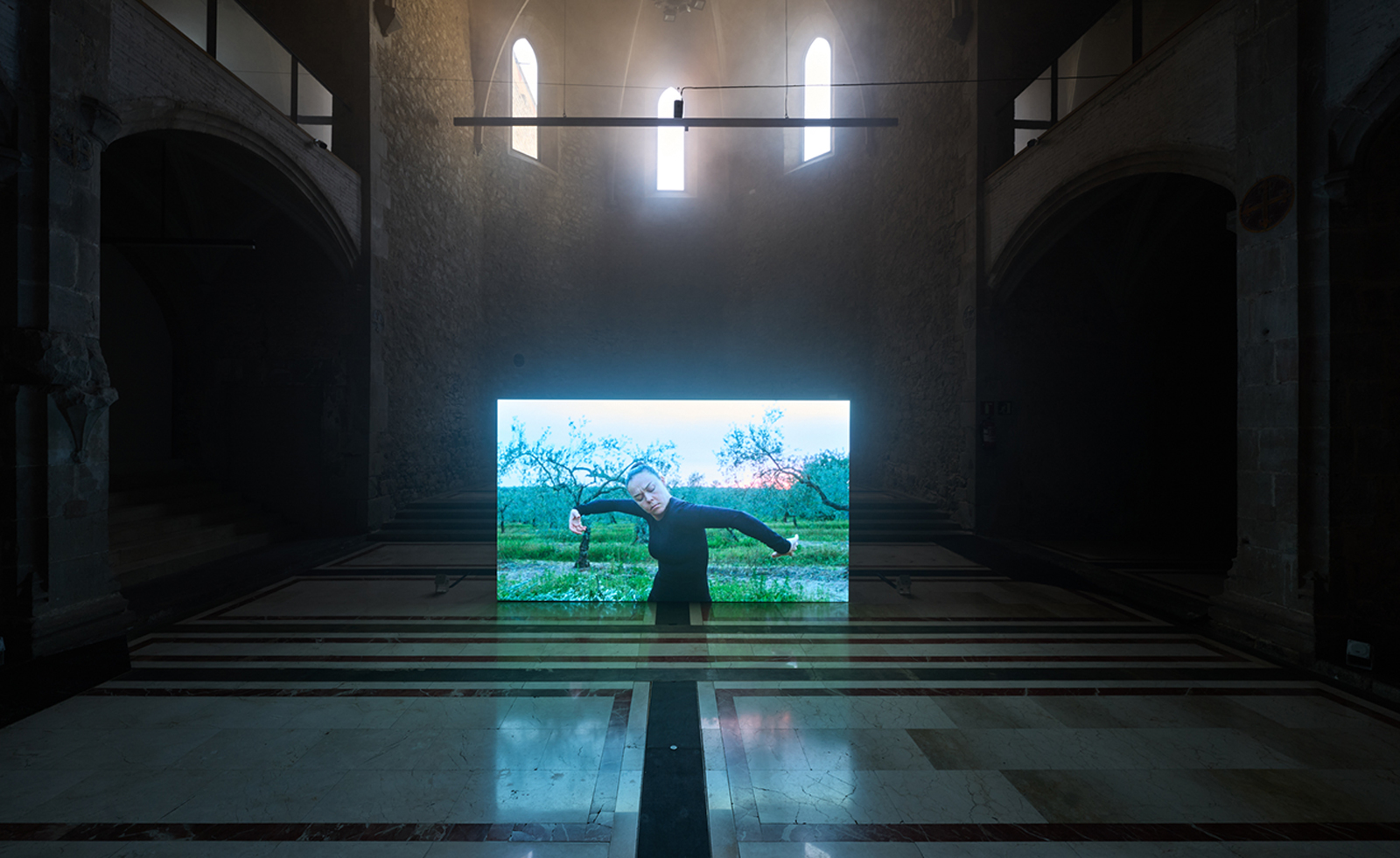 Wu Tsang reinterprets Carmen's story in Barcelona
Wu Tsang reinterprets Carmen's story in BarcelonaWu Tsang rethinks Carmen with an opera-theatre hybrid show and a film installation, recently premiered at MACBA in Barcelona (until 3 November)
By Emily Steer